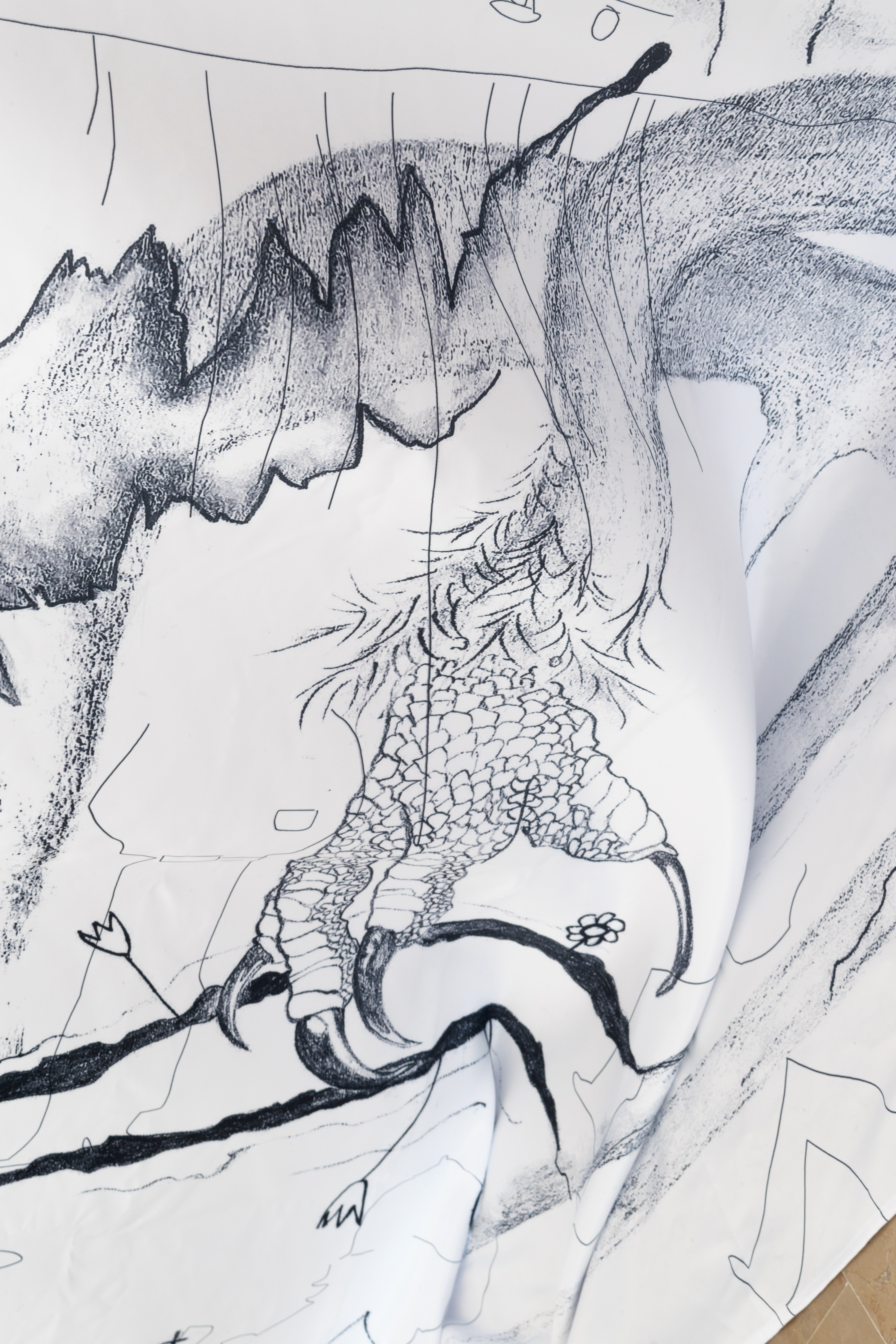NOTHING HAVE I EARNED...
NOTHING HAVE I EARNED.
2021
Print on synthetic satin
150 x 220 cm, looped sound 12'17", two speakers, concrete, hypoallergenic silicone, metal, pine needles, rust
The graphical work takes its title from the Russian song "Kalinka" (in Russian "калинка", meaning "little cranberry"),
often mistaken for a traditional folk song. Composed in 1860 by Ivan Larionov in a folk style, "Kalinka" later evolved into a dance.
At first glance, the song appears to be a simple and naive romantic tune. However, the persistent repetition of the key line,
"Little cranberry, cranberry, cranberry of mine! In the garden (there is) a berry – little raspberry, raspberry of mine!"
hints at a deeper, more ephemeral subtext of death.
During the Soviet era, the song gained widespread recognition through performances by the official army choir
of the Russian armed forces, known as the Alexandrov Ensemble or the Red Army Choir.
In 1979, German singer Ivan Rebrov (Hans-Rolf Rippert) reinterpreted the song, infusing it with a narrative of peasant heritage
through lines like: "I've lived with my lord. I've lived with a sweetheart. Nothing have I earned...Nothing have I earned."
Thus, the title of this graphical piece is derived from Rebrov's remake of "Kalinka," serving as a critique of the romanticization
and monetization of death and violence. The repetitive narrative is intertwined with the contemporary situation in Russia:
police brutality, suppression of peaceful protests, assassinations of opposition figures, and arrests of politicians, activists, and cultural workers.
Initially created before February 2022, this work portrayed the unbounded state violence within Russia.
The background in the artwork is deliberately white, while the grayish graphic elements depict the inflamed
madness of the (pre)war state of social policy in Russia.
Before 2022, the main focus of the work lied in the graphical collage. After the full-scale invasion of Ukraine,
it transformed into ‘Nothing’. Now the main focus lies in between, in the white silence.






